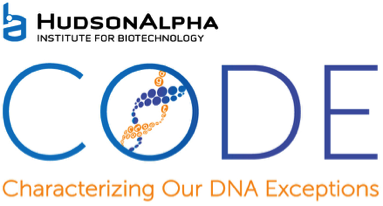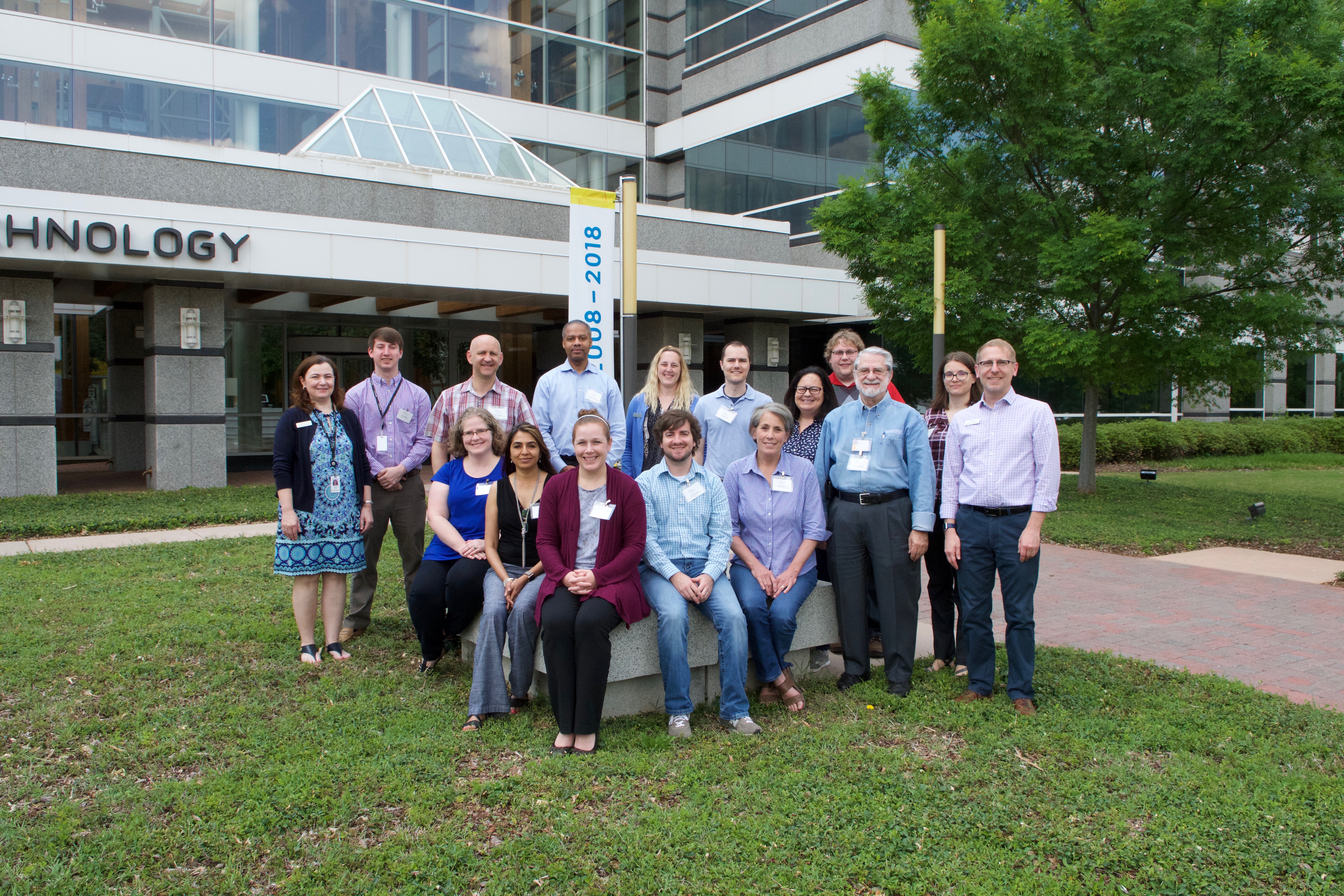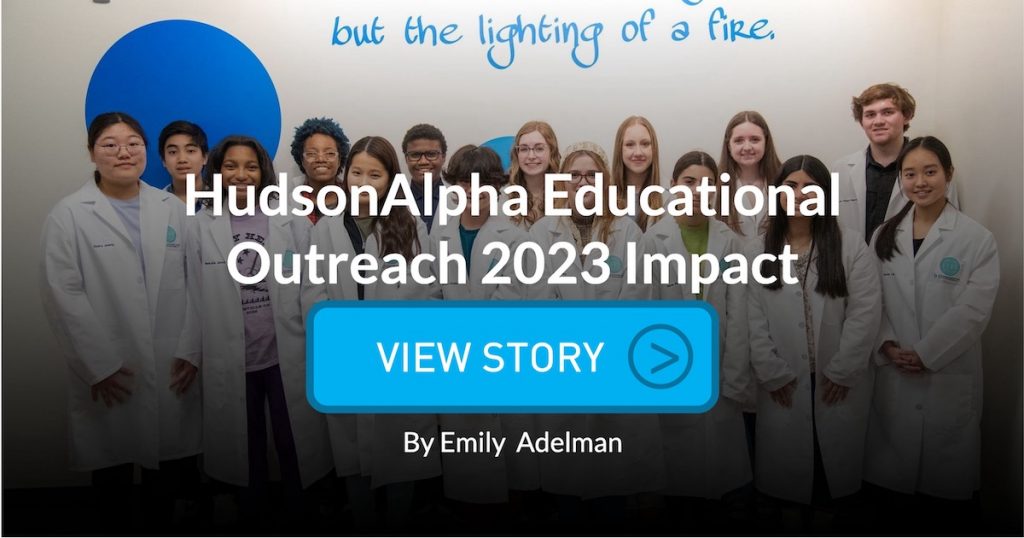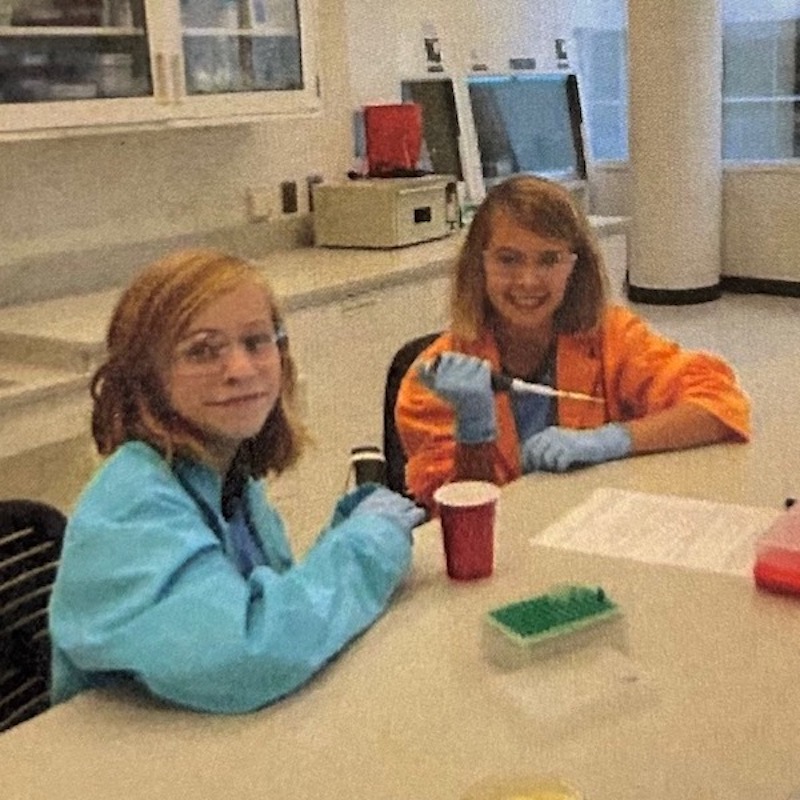Huntsville, Ala. — HudsonAlpha Institute for Biotechnology has been awarded a $150,000 grant from the Alabama Power Foundation to introduce bioinformatics to students across the state.
 Through a new program, Characterizing Our DNA Exceptions (CODE), HudsonAlpha will engage small groups of college students with authentic genomic research. Students will work to computationally analyze DNA variants – a practice known as bioinformatics – from real-world, anonymous clinical samples.
Through a new program, Characterizing Our DNA Exceptions (CODE), HudsonAlpha will engage small groups of college students with authentic genomic research. Students will work to computationally analyze DNA variants – a practice known as bioinformatics – from real-world, anonymous clinical samples.
Current sequencing technologies make it possible to obtain the entire genetic code of an individual in a matter of days. Often, the process detects DNA variants, or genetic changes, that are not well understood because they have not been studied. These changes are known as variants of uncertain significance, or a VUS.
“A VUS undergoes extensive analysis and testing to determine whether it has a role in the development of a trait or disease, a process that is very time consuming,” said Michele Morris, workforce development lead at HudsonAlpha. “Because of this, VUS interpretation has historically been conducted in larger universities. Through CODE, we want to lower those access barriers.”
In doing so, HudsonAlpha is collaborating with five Alabama colleges and universities across a broader scope of academia. Schools range from nonprofit, to large community colleges, historically black colleges and universities (HBCUs), and liberal arts:
- Alabama College of Osteopathic Medicine
- Alabama State University
- Birmingham Southern College
- Lawson State Community College
- Wallace State Community College
Each school will select a faculty member to serve as program adviser who will then select five to ten students to participate in CODE. HudsonAlpha researchers and educators are hosting a two-day workshop for advisers May 14-15.

Collaborating educators joined HudsonAlpha’s Dr. Neil Lamb, Michele Morris and Nikki Mertz; and Dr. Jeremy Prokop of Michigan State for the CODE workshop.
“It has always been the mission of the Alabama Power Foundation to support advances in our state. As technology continues to evolve and innovation is more vital than ever, it is important that we continue to expose Alabama’s students to cutting-edge initiatives to ensure their success,” said Myla Calhoun, president of the Alabama Power Foundation. “Programs like this one can be real game changers for these students, and we are proud to provide support.”
Pilot schools will participate in CODE for the 2018-2019 academic year. Students will present their work at a pilot group symposium in March 2019. Following the initial experience, pilot schools will be eligible to continue participation for a second year and this fall, HudsonAlpha will begin recruiting 25 more schools.
“Enormous amounts of genomic data are being generated on a daily basis, so CODE participants will have access to that data and work to characterize newly identified DNA variants,” said Neil Lamb, PhD, vice president for Educational Outreach at HudsonAlpha. “We hope this experience will inspire more Alabama students to pursue a career in the STEM fields such as genomics and bioinformatics.”
About HudsonAlpha: HudsonAlpha Institute for Biotechnology is a nonprofit institute dedicated to developing and applying scientific advances to health, agriculture, learning, and commercialization. Opened in 2008, HudsonAlpha’s vision is to leverage the synergy between discovery, education, medicine, and economic development in genomic sciences to improve the human condition around the globe. The HudsonAlpha biotechnology campus consists of 152 acres nestled within Cummings Research Park, the nation’s second largest research park. The state-of-the-art facilities co-locate nonprofit scientific researchers with entrepreneurs and educators. HudsonAlpha has become a national and international leader in genetics and genomics research and biotech education and includes more than 30 diverse biotech companies on campus. To learn more about HudsonAlpha, visit hudsonalpha.org.
HudsonAlpha Media Contact:
Margetta Thomas
mthomas@hudsonalpha.org
256-327-0425


